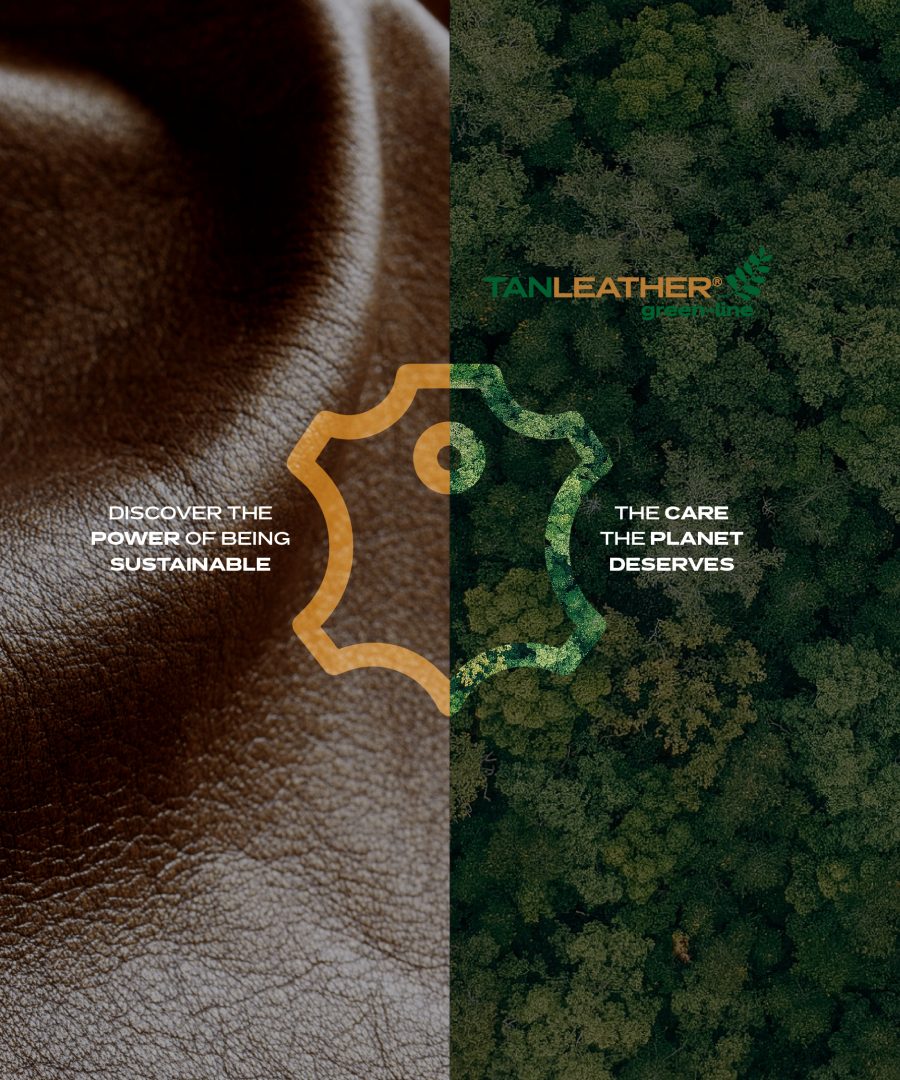TANAC presents the Green-Line premium line, an alternative that combines high performance, sustainability and innovation for leather treatment processes, with natural bases from vegetable tannin extracts.
The growing global concern around the preservation of the environment has been mobilizing people, institutions, governments and companies from different countries and in different areas to adopt clean and low carbon emission processes. For this, industries are reviewing processes and investing in research and technology.
In the leather segment, there is an ever-increasing discussion around seeking less polluting alternatives that generate less environmental impacts. In the production process, the tanning and retanning stages are crucial to obtain leather with excellence and in a sustainable way.
Tanning is the process of transforming bovine skin into leather, when protein stabilization occurs. In Retanning on the other hand, technical characteristics such as color, softness, thickness, touch, among other aspects desired for the purposes for which the leather is intended, are checked.
Among the known methods of stabilizing the protein, there are basically three different ways of processing the hides: using substances of mineral origin, synthetic origin or vegetable origin.
In mineral and synthetic tanning, chromium and/or synthetics salts of petrochemical origin are normally used. In vegetable tanning, tannins are used, which are very common in nature, found in various parts of vegetables (bark, wood, leaves, fruits and roots).
Tannin-based tanning
One of the most valued characteristics of tannin-based tanning is its natural aspect and the use of renewable sources in the origin of its products. Another important feature is the lower environmental impact of its processing, which facilitates the reuse of waste, which can be used in composting for the production of fertilizers, for example, contributing to soil preservation.
Green-Line, Tanac’s new line for leather tanning
For years, TANAC has been working with sustainable solutions for leather tanning, based on the vegetable extract of Black Wattle, which helps in all stages of production – from pre-tanning, tanning and retanning. Thus, it serves several applications, whether for the automotive, upholstery, footwear and clothing industries, among others.
Now, the company launches a new product line. What is new is that, in addition to maintaining all the internationally recognizes technical and sustainable characteristics, the Green-Line line expands the diversity of applications to complete special characteristics to the leather, adding value and sustainability to the final product. TANAC has improved and developed new technologies that give differentiated characteristics to this new line such as greater softness, better texture, dispersion and better exhaustion of products in the processes.
Each tannin has unique properties, which result in leather goods with unique characteristics, which can make all the difference in the production of certain artifacts.
Sustainable from the ground up Tanac is the largest producer of Black Wattle in the world. The company plants, on average, 14 million trees per year, ensuring the proper use of natural resources in operations that follow strict Quality and Environmental Management systems, proven by several international certifications. It is also a carbon negative company, removing 8 times more carbon dioxide from the atmosphere than it emits. The entire supply of Tanac’s products begins at the company’s Forestry Unit, with the application of responsible forest management, proving the origin of raw materials from the source. The company, founded 75 years ago, is a world leader in the production of vegetable extracts, woodchips and pellets, exporting to more than 60 countries on all continents.


